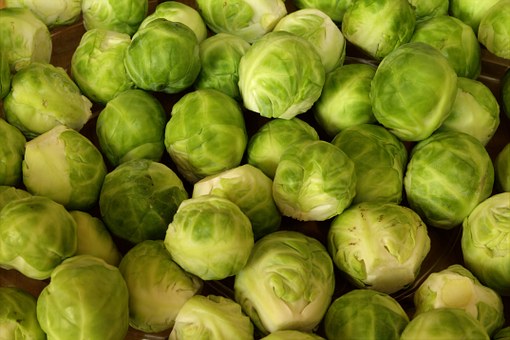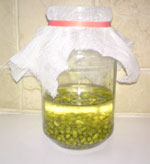
Sprouted Seeds: Grow Your Own and Reap the Nutritional Benefits
Posted by HealthyMuslim on Wednesday, December, 03 2008 and filed under Nutrition
Key topics: Sprouting

Sprouted seeds are seeds that are grown specifically to be eaten as young baby shoots or as small tender-leaved plants.
Sprouts are super-nutritious, packed with vitamins, minerals, proteins, antioxidants and phytonutrients which are released when the seed germinates. They have a higher nutritional value than a lot of vegetables, especially supermarket vegetables, and are a real example of 'living food'. They are undoubtedly the freshest food you will eat.
Sprouted seeds can easily be grown and harvested at home organically and cheaply.
How to sprout your own seeds: All you need to sprout your own seeds at home is:

The seeds to be sprouted are placed in the jar, filling about one fifth of it. It is important not to pack the seeds too closely together, as they will not receive enough air or light. A small amount of seeds will produce a lot of sprouts, so you will not need many.
The jar is then filled about halfway with water, ensuring that all seeds are thoroughly covered. Place the square of muslin on top of the jar and secure with the rubber band. Leave the sprouts to soak overnight for at least 6 hours, or longer if the sprouts are larger. Then drain the water through the muslin cloth. The muslin cloth acts as a sieve and does not need to be removed until the sprouts are ready to eat.
Rinse and drain the sprouts twice a day for a few days until the shoots begin to appear. Once the shoots are at least as long as the seed/bean, etc, the sprouts are ready to eat. They should then be stored in an airtight container in the fridge.
What to sprout:
Sprouts can either be seeds, grains, pulses or beans. They can be eaten raw in salads or sandwiches, or lightly stirfried. A few of the more popular sprouts are given below.
- alfalfa- a tasty seed that means 'father of all food' in Arabic. The protein content is about 35% and it contains as much carotene as carrots, as well as vitamins A, B, C and E. Takes 3-5 days to grow.
- fenugreek- A larger, spicy-flavoured sprout, delicious in salads mixed with milder sprouts. Contains 30% protein, vitamins A & C, and iron. Ready in 3-5 days.
- radish- A hot, crisp-tasting sprout, best mixed with milder sprouts like alfalfa. Rich in Vitamin C. Takes 2-4 days to grow.
- Mung beans- a popular favorite that produces long sprouts, particularly good for stir fries. Contains 20% protein and is rich in vitamins A, C and E and amino acids. Ready in 2-5 days.
- Aduki Beans- Related to the mung bean but spicier in flavour. Contains Vitamin C, iron and amino acids. Takes 3-5 days.
- chickpeas- These give a sweet, crunchy flavour and are best enjoyed when the sprouts are still small and sweet. High in vitamins A and C.
- peas- These can be be eaten as young shoots or if sprouted for longer, they develop leaves and can be eaten as salad leaves. High in vitamins A, B1, B2, B3, B6, folic acid, calcium and magnesium.
A selection of different seeds can be sprouted in the same jar to create a tasty and nutritious mix. To enjoy a constant supply of fresh sprouts it is advisable to start a new jar every 2-3 days so that while one jar is germinating, another is ready to eat.
So now you know how simple it is to do, have a go yourself and start enjoying the nutritional benefits of sprouting your own seeds.
Health, fitness and longevity
Based upon the principles of health
in the Qur'an and Prophetic Traditions.
HealthyMuslim.Com
There are two bounties in which
most people lose out: good health
and free time. Al-Bukhari.